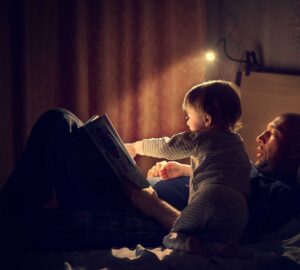

Potty training is probably not on any parent’s “favorite things” list, but the reward certainly outweighs the challenge. While there’s no one-size-fits-all method, below are a few tips for you to prepare your child to enter the world of using the toilet:
- Stay calm and positive throughout the process. Messes will happen and your patience and understanding will help your child avoid added stress.
- Watch for signs of readiness in your child, such as the ability to pull down his or her own pants; your child noticing that his or her diaper is wet; your child staying dry for longer periods of time; and your child desiring to be a “big kid”.
- It’s important to follow your child’s timeframe for potty training, and ensure that no major life change has occurred in their lives recently, as it could lead to regression.
- Set aside two to three days for potty training at home, where your child has easy access to the toilet and the ability to focus on the training.
- Be consistent in taking your child to the toilet. Set the timer for 45 minutes, and each time it goes off, tell your child, “It’s time to go to the potty.”


- Buy your child his or her favorite big kid underwear as a motivation to stay dry during the day.
- If possible, avoid using Pull-Ups during the day, as they mimic diapers and make it more difficult for children to feel wet.
- Buy your child his or her own potty, as it will be less intimidating and easier to use than a regular toilet.
- Praise and reward your child for using the potty.
Maui mother of two, Brianna McLain (@simplelovelymoments), shared her perspective on potty training: “Watch for your little one’s interest in using the potty. Around two and a half seems to be a magical age when they can start potty training. Make sure they can communicate the need to go to the bathroom, and can at the very least take off their bottoms on their own. Get some books from the library about using the potty. Most importantly, make sure to keep it positive. Accidents will occur and it’s important to keep learning a new skill as it’s good experience for them to build up confidence and familiarity, regardless of how gross it is for us to clean up sometimes.”



